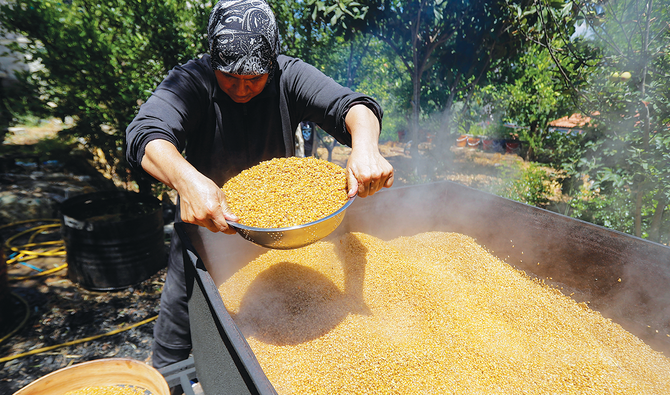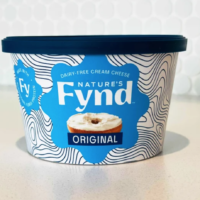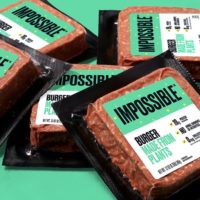
Source: Arab News
Every week we track the business, tech and investment trends in CPG, retail, restaurants, agriculture, cooking and health, so you don’t have to. Here are some of this week’s top headlines.
Tuesday’s massive explosion in Beirut destroyed Lebanon’s main grain silo at the port, which held tons of Lebanon’s food stocks. The nation is now left with just six weeks worth of grain reserves.
In other news, Vital Farms raised $200 million in its public offering last Friday, valuing it at $1.3 billion.
One-third of U.S. restaurants, or 231, 000, are expected to permanently close this year as a result of the hardships caused by COVID-19. In New York alone, 80% of restaurants weren’t able to make rent in July and 40% didn’t pay rent at all.
We need your support as well. Producing our newsletter takes a lot of time and resources, and we need to change our business model to keep it going. To date, we’ve funded our work through our events, sponsorships and consulting, which are all on hold due to the pandemic. If you find our newsletter to be a valuable resource, we hope you will consider making a one time or monthly contribution, so we can keep the newsletter going and free for those who can not afford a subscription fee. Whether it’s $5 or $500 every bit helps and shows us that you value our work. Not able to contribute right now? You can help by sharing our newsletter with friends and colleagues.
Check out our weekly round-up of last week’s top food startup, tech and innovation news below or peruse the full newsletter here.
1. Lebanon: Fear of Food Shortages After Beirut Explosion Hits Grain Reserves – Arab News
Lebanon’s main grain silo at Beirut port was destroyed in a blast, leaving the nation with less than a month’s reserves of grain. Beirut port silos had capacity for 120k tons.
2. Vital Farms’ Blockbuster IPO Proves Wall Street Has an Appetite for Sustainable Farming – Forbes
The company raised $200m in its public offering on Friday, valuing it at $1.3b. Its shares soared 60%, closing at $35. The company’s success proves that more ethical standards are appealing to consumers and investors.
3. One Third of US Restaurants Face Permanent Closure This Year – Bloomberg
As many as 231k of the nation’s roughly 660k eateries will likely shut down this year.
4. Getting Covid Gets You Fired When You’re a Food Worker on a Visa – Bloomberg
As coronavirus cases explode at US farms and food factories, foreign migrants who pick fruit, clean seafood and sort vegetables are getting trapped in tightly packed bunkhouses where illness spreads like wildfire. Often, they can’t leave – unless they’re willing to risk deportation.
5. Farmers Business Network Raises Funds at $1.75B Valuation – Bloomberg
The $250m round was led by BlackRock. FBN plans to expand its agritech platform with new funds.
6. The US Food System Is Killing Americans – CNN
Among the most significant risk factors for hospitalization and death in Covid-19 are the presence of diet-related chronic diseases. Nearly three out of four American adults are overweight or obese. Half have diabetes or pre-diabetes.
7. In Trying Times, Americans Look to Our True Leaders — Chain Restaurants — for Guidance – Eater
Starbucks, McDonald’s and Chipotle all have in-store mask policies and guidance, which is more than the federal government can say.
8. Nearly 40% of NYC Restaurants Didn’t Pay Any Rent in July – Eater
The NYC Hospitality Alliance recently surveyed 471 establishments in the city and found more than 80% did not pay full rent.
9. A Few Farmers Get Huge USDA Relief Payments While Many Struggle for Pennies – The Counter
While a handful of farmers received hundreds of thousands of dollars, more than 300 received less than $10.
10. How Essential Food Workers Are Fighting Back – Civil Eats
With lawsuits and the civil rights complaints, advocates are taking concrete steps to prevent risking workers’ lives for the sake of company profits.
11. Food & Ag Anti-Racism Resources + Black Food & Farm Businesses to Support
Check out our list of resources to learn about systemic racism in the food and agriculture industries. We also highlight Black food and farm businesses and organizations to support.
12. Beyond Meat’s US Grocery Sales Nearly Triple, Offsetting Restaurant Losses – CNBC
Sales soared 194.9% during the quarter ended June 27.
13. DoorDash Launches a Convenience Store – TechCrunch
The digital storefronts are available in eight cities throughout the US and plans to launch in additional cities over the next few months. They are essentially micro-fulfillment centers for delivery workers.
14. Trader Joe’s Defends Product Labels Criticized as Racist – New York Times
Weeks after admitting that some of its international-themed product labels might have fallen short of an “attempt at inclusiveness,” the grocery store chain is rejecting criticism of the labels.
Our newsletter is the absolute easiest way to stay on top of the emerging sector, so sign up for it today and never miss the latest food tech and innovation news and trends, Already signed up? Share the love with your friends and colleagues!
Related Posts
 Nature’s Fynd Launches Vegan Products from Yellowstone Fungi, WHO Confirms Frozen Food Can Transmit COVID + More
Nature’s Fynd Launches Vegan Products from Yellowstone Fungi, WHO Confirms Frozen Food Can Transmit COVID + More Impossible Cuts Prices by 20%, Big Food Lost $12B in Sales to Small Brands & Private Label in 2020 + More
Impossible Cuts Prices by 20%, Big Food Lost $12B in Sales to Small Brands & Private Label in 2020 + More UK to Approve Gene-Edited Crops and Livestock, US Lost 372K Restaurant Jobs in December + More
UK to Approve Gene-Edited Crops and Livestock, US Lost 372K Restaurant Jobs in December + More


